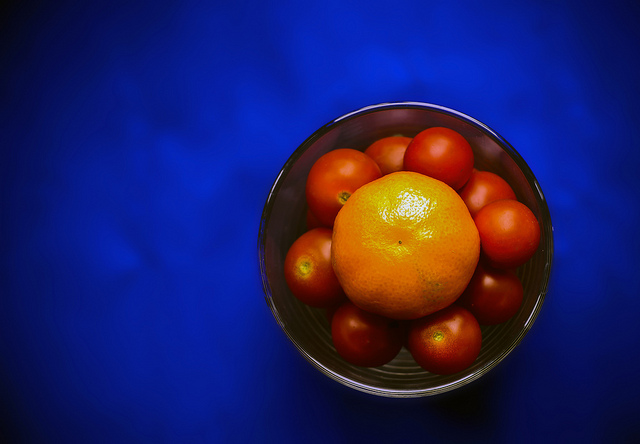The modern day micro biome is a battlefield.
Here we are, in a world absolutely filled with bacteria, where billions of microbes live on our pinky fingers alone. Yet the visible world (us) has waged an all out war on the invisible one: bacteria. Can you guess who the bad guys are?
The battle intensifies as we develop new ways to slaughter pervasive microbes.
We attack healthy soil organisms with pesticides and GMOs, without understanding the broader implications. We utterly destroy our entire range of internal bacteria at the slightest onset of any illness. Antibiotics are a useful tool in some cases, but it’s becoming obvious that they are over prescribed.
Hand sanitizer graces every super market entrance and shopping mall. The battle of bacteria versus humans has far reaching implications—these microbes, quite literally, affect every single aspect of our health.
While it’s easy to isolate our ailments into neat and tidy little categories, all with different causes and effects, science is on the way to busting this myth. Everything truly is connected and more research is proving the importance of healthy gut bacteria.
After many years on birth control and constant immune problems, I realized just how important healthy gut bacteria really is. I knew it didn’t have to be this way, I was too young to be suffering from hormonal imbalance and depression. But age has nothing to do with it.
When I wiped out my healthy gut bacteria from taking too many antibiotics and contraceptives it changed my whole demeanor. It was a long road ahead of trials and tribulations until I figured it out: probiotics are important.
The beneficial bacteria present in our digestive tracts alone outnumbers the cells in our bodies by 10 to 1; we are literally more bacteria than we are cells.
What our ancestors embraced to help them build their immune systems, preserve food and render difficult to digest foods more bioavailable, we wage war with.
How the battle began:
Birth
Our entry into the world is an important part of the story of how our micro biomes became so disturbed. It wasn’t long ago when most women birthed at home, a setting far from sterile. We brought our babies into the world through the birth canal which thus populated them with a range of beneficial bacteria to prepare their immune systems for the new world they were entering. Nature’s design really is perfect.
A hearty dose of colostrum is the first meal a new baby should experience, preparing them with a strong dose of antibodies to strengthen their systems at such a vulnerable time of development.
We’re persuaded by our culture to accept modern birthing practices and embrace surgical cesarian procedures as if it didn’t matter. Elective c-sections and unnecessary medical interventions are on the rise and have long been embraced as positive technological advancements, but there is a dark side.
Just because we can’t see it, doesn’t mean it isn’t there—this applies to bacteria as much as it does to the wind or gravity. Populating healthy gut bacteria and setting up a child’s foundation of immunity boils down to colonizing the child’s micro biome.
Antibiotics
Antibiotics have saved countless lives, and so have cesarean sections, but we have come to depend on them as commodities to be used at the first sign of any inconvenience. The research is clear, antibiotics are being over used and super bacteria are learning immunity toward them.
Long ago, people relied on the natural anti-biotic properties inherent in a variety of plants. We learned to harbour these specific properties and use them to treat minor infections and illness. These plants are still around, but we’ve lost touch with how to use them. There is certainly a time and place for antibiotics but it’s important to know that we have options.
Are probiotics really important?
Probiotic supplements can be a useful addition to any lifestyle, especially if our gut flora has been compromised.
There are also many alternative ways to get your probiotic quota. Homemade lacto-fermented foods like sauerkraut have just as much beneficial bacteria as store bought probiotic supplements, perfect for those of us on a budget. Other natural sources of probiotics include kombucha, kefir and yogurt to name a few.
In the past all indigenous people included fermented foods in the diet, both for health and preservation purposes. When I started to embrace cultured foods, my health completely changed. The transformation from such a simple addition was profound.
Problems caused by lack of probiotics:
Candida overgrowth/parasites
Removing toxins from the body
Depression, anxiety and mental illness
Nourishing our second brain
The gut literally is our second brain, healthy gut flora equals balanced hormones,less anxiety and depression, and healthier digestion. The feeling of butterflies or intuition stems from the vast network of neurons in our guts.
Our second brains contain more neurons that the spinal cord or even the peripheral nervous systems. While it lacks the rational actions of the brain, our gut health does affect mood and emotions, energy levels, and overall feelings of well being.
Relephant Reads:
How to Choose the Right Probiotic for Your Imbalance.
Probiotics: Healthy or Hype?
Author: Chantelle Zakariasen
Editor: Emily Bartran
Photo: John Bunting/Flickr

 Share on bsky
Share on bsky







Read 2 comments and reply